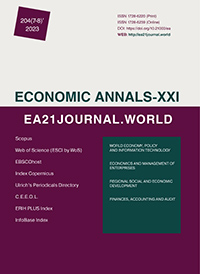Tourism as a catalyst for regional development: Uzbekistan’s experience and economic prospects
Tourism as a catalyst for regional development: Uzbekistan’s experience and economic prospects
Author(s): Olim Astanakulov, Sanjar GoyipnazarovSubject(s): Economy, National Economy, Tourism
Published by: Institute of Society Transformation
Keywords: Tourism; Regional Development; Uzbekistan; Economic Indicators; Sustainable Tourism; Infrastructural Development; Cultural Preservation; Mixed-Methods Research;
Summary/Abstract: The transformative potential of tourism as an economic driver has been the subject of extensive academic research. In the context of transitional economies, this relationship assumes a more nuanced role, with tourism acting as both a catalyst and a product of regional development. Among transitional economies, Uzbekistan presents a unique case study characterized by its burgeoning tourism industry and robust policy frameworks aimed at regional development. This paper aims to analyze the multifaceted role of tourism in catalyzing regional development in Uzbekistan. Employing a mixed-methods approach, the study triangulates findings from econometric modeling, surveys, and qualitative interviews. The purpose of our interdisciplinary research is to evaluate the direct and indirect impacts of tourism on regional economic parameters, including but not limited to GDP growth, employment rate, and infrastructure development. Our econometric model analyzes time-series data from 2000 to 2021 and employs several control variables to isolate the economic impact attributable to tourism. This quantitative inquiry is further enriched by qualitative data sourced through semi-structured interviews with stakeholders in the tourism industry, policy makers, and local communities. Our findings indicate that tourism in Uzbekistan acts as a catalytic agent for regional development in multiple dimensions. Not only does it contribute directly to GDP growth and employment but also plays a significant role in cultural preservation, infrastructural improvements, and enhancing social capital. Furthermore, our analyses unveil the essentiality of sustainable tourism policies in amplifying these positive impacts while mitigating potential negative externalities. Therefore, the study’s outcomes bear substantial implications for policymakers, suggesting that a nuanced approach in tourism management could serve as a key strategy in holistic regional development.
Journal: Економічний часопис - ХХІ
- Issue Year: 204/2023
- Issue No: 7-8
- Page Range: 33-44
- Page Count: 12
- Language: English

